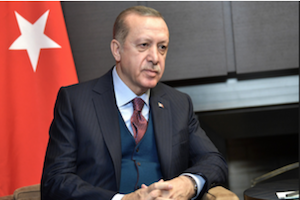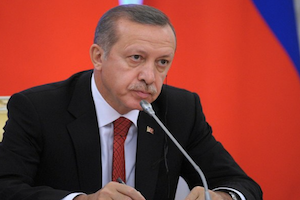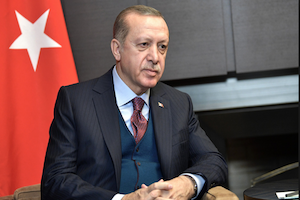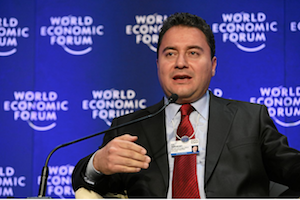Defying Denial: Turkey's Kurds and the March 31 Local Elections
By Gareth H. Jenkins
March 27, 2019
Despite intense pressure from the Turkish state, including the imprisonment of a large proportion of its leadership, the Peoples’ Democratic Party (HDP) is again expected to win the majority of votes in the predominantly Kurdish southeast of the country in the nationwide local elections on March 31, 2019. But President Recep Tayyip Erdoğan’s repeated public threat to prevent HDP officials from holding office means that, for Turkey’s Kurds, the election will be less about choosing who will run their local authorities than their own identity amid a growing conviction that their future lies in a considerably looser relationship with the central government in Ankara.

How the Fed Empowered Erdogan, and How It Now Undermines his Rule
By Barış Soydan
February 11, 2019
It is impossible to understand the electoral successes so far of Recep Tayyip Erdoğan, the undisputed leader of Turkey since 2003, without taking the spectacular growth of consumerism in the country into consideration. Notwithstanding the fact that the neoliberal economic policies of the ruling Justice and Development Party (AKP) have disproportionately benefited the wealthiest in Turkish society, low-income earners have also benefited from the economic growth of the last sixteen years. Yet this growth has to a large extent relied on the quantitative easing program of the U.S. Federal Reserve. The end of quantitative easing will be consequential for Erdoğan and his party. Erdoğan is not going to be able to retain the same level of support that he has enjoyed among low-income earners. Get ready for substantial drops in AKP votes in the municipal elections in March.

The Working Class and Erdogan: The End of the Love Affair?
By Barış Soydan
October 10, 2018
Since 1950, Turkey’s conservative parties have carried every election except those in 1973 and 1977, which were carried by the social democrats. The key to the right wing parties’ electoral success has been their ability to retain the support of the working class. That is also what largely accounts for the conservative Justice and Development Party’s (AKP) sixteen year long hold on power. But with the economy in crisis, the AKP’s grip on the working class is bound to become more tenuous. The protests among the workers at Istanbul’s new airport herald the end of the love affair between the working class and the ruling conservatives, but the lack of a social democratic political alternative may offer the AKP another lease on life.

Illusion's End: Erdoğan and Turkey's Coming Economic Chill
By Gareth H. Jenkins
June 20, 2018
The rapid depreciation in the value of the Turkish Lira since the beginning of 2018 is the product not only of the collapse of any remaining vestiges of investor confidence in the regime of President Recep Tayyip Erdoğan but a symptom of the failure of the ruling Justice and Development Party (AKP) to address the long-standing structural vulnerabilities of the Turkish economy.

Turkey's Emergency Election: The Primacy of Raison d'etat
By Halil Karaveli
May 2, 2018
It is not President Recep Tayyip Erdogan’s “power hunger” that accounts for Turkey’s snap presidential and general election. Instead, raison d’état is behind this event, which will enshrine presidential rule. The abolition of parliamentary rule and the concentration of all executive powers to the presidency are designed to neutralize the Kurdish challenge. It is also intended to refurbish the authority of the state and lend it a renewed aura of strength after it was torn apart by the Gülenists. Reactions to Turkish developments should not be based on interpretations that neglect the primacy of the state’s interests and the impact of the Gülenist threat and Kurdish challenge.



